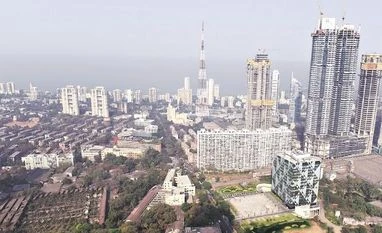Due to continuously surging food prices and leisure activities, Mumbai continues to be the most expensive city in India to live in for expatriates, ahead of global peers Washington and Melbourne.
However, India’s Silicon Valley, Bengaluru, which has a high population of expatriates driven by the information technology sector, is getting more reasonable on cost of living.
According to the Cost of Living Survey published by global personnel consultants Mercer, Bengaluru has fallen in the cost of living ranking. Driven significantly by a relative drop in prices on transportation — taxi fares, cost of automobile and auto parts, as well as running costs. “Such studies help promote destinations among corporate houses. The cost of living not being very high is a sign of good investment. So, information technology companies are more bent towards Bengaluru, as they feel they can get a better office location, attract more talent and compensate employees more,” said Jaspal Singh, partner at Valoriser Consultants.
According to a Mercer spokesperson, other than transportation, the index for home services (domestic help hourly rate, laundry, and dry cleaning) have come down for Bengaluru. Other categories like domestic supplies, personal care and sports and leisure have also changed marginally in the city, added the spokesperson.
Mumbai at 55 continues to inch towards the Top 50 club and continues to be more expensive than Washington (56), Melbourne (58), Frankfurt (68), Buenos Aires (76), Stockholm (89) and Atlanta (95). With prices of food items such as meat, butter, and poultry rising significantly, the ‘Maximum City’ continues to be expensive for expatriates.
New Delhi, which had moved in the top 100 category last year in terms of cost of living, has managed a drop in ranking by four positions but has seen a relative increase in the cost of living due to rise in prices of transportation and sports and leisure related services.
Kolkata at 182 remained the least expensive among the surveyed Indian cities, though has moved up two spots due to increase in costs of domestic supplies and home services.
For Mumbai, inflation was at 5.57 per cent for the surveyed set of expatriate goods, including alcohol, during 12 month period beginning July 2017, according to the report. It was less than half at 2.52 per cent and 2.01 per cent for Bengaluru and Delhi, respectively.
“The increase in prices of goods in our cities, viewed along with currency exchange rate, has a direct impact on the Indian assignee compensation when using a balance sheet approach, making overseas assignment costs sometimes greater and sometimes smaller,” said Padma Ramanathan, India Practice Leader, Global Mobility at Mercer.
In this scenario, she added, companies are reconsidering how frequently expatriate salaries are reviewed. In balancing assignee cost with assignee satisfaction, some companies prefer to let the assignee retain the benefit of a windfall if applicable.
Hong Kong is ranked as the world's costliest city to live in for expatriates, followed by Tokyo, Zurich, Singapore, and Seoul. This year’s ranking includes 209 cities across five continents and measures the comparative cost of more than 200 items in each location, including housing, transportation, food, clothing, household goods, and entertainment.
Unlock 30+ premium stories daily hand-picked by our editors, across devices on browser and app.
Pick your 5 favourite companies, get a daily email with all news updates on them.
Full access to our intuitive epaper - clip, save, share articles from any device; newspaper archives from 2006.
Preferential invites to Business Standard events.
Curated newsletters on markets, personal finance, policy & politics, start-ups, technology, and more.
)